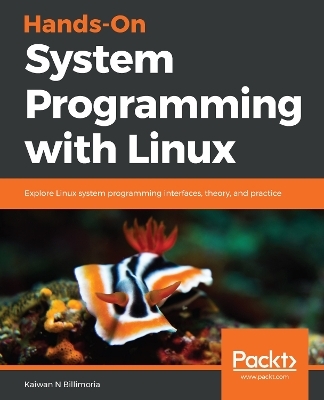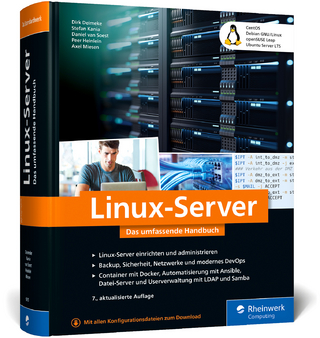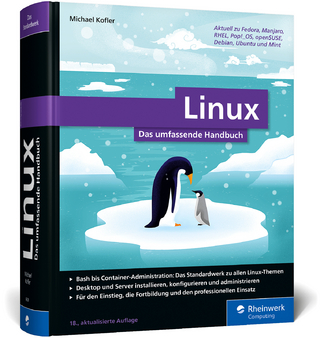
Hands-On System Programming with Linux
Packt Publishing Limited (Verlag)
978-1-78899-847-5 (ISBN)
Get up and running with system programming concepts in Linux
Key Features
Acquire insight on Linux system architecture and its programming interfaces
Get to grips with core concepts such as process management, signalling and pthreads
Packed with industry best practices and dozens of code examples
Book DescriptionThe Linux OS and its embedded and server applications are critical components of today’s software infrastructure in a decentralized, networked universe. The industry's demand for proficient Linux developers is only rising with time. Hands-On System Programming with Linux gives you a solid theoretical base and practical industry-relevant descriptions, and covers the Linux system programming domain. It delves into the art and science of Linux application programming— system architecture, process memory and management, signaling, timers, pthreads, and file IO.
This book goes beyond the use API X to do Y approach; it explains the concepts and theories required to understand programming interfaces and design decisions, the tradeoffs made by experienced developers when using them, and the rationale behind them. Troubleshooting tips and techniques are included in the concluding chapter.
By the end of this book, you will have gained essential conceptual design knowledge and hands-on experience working with Linux system programming interfaces.
What you will learn
Explore the theoretical underpinnings of Linux system architecture
Understand why modern OSes use virtual memory and dynamic memory APIs
Get to grips with dynamic memory issues and effectively debug them
Learn key concepts and powerful system APIs related to process management
Effectively perform file IO and use signaling and timers
Deeply understand multithreading concepts, pthreads APIs, synchronization and scheduling
Who this book is forHands-On System Programming with Linux is for Linux system engineers, programmers, or anyone who wants to go beyond using an API set to understanding the theoretical underpinnings and concepts behind powerful Linux system programming APIs. To get the most out of this book, you should be familiar with Linux at the user-level logging in, using shell via the command line interface, the ability to use tools such as find, grep, and sort. Working knowledge of the C programming language is required. No prior experience with Linux systems programming is assumed.
Kaiwan N Billimoria taught himself programming on his dad's IBM PC back in 1983. He was programming in C and Assembly on DOS until he discovered the joys of Unix (via Richard Steven's iconic book, UNIX Network Programming, and by writing C code on SCO Unix). Kaiwan has worked on many aspects of the Linux system programming stack, including Bash scripting, system programming in C, kernel internals, and embedded Linux work. He has actively worked on several commercial/OSS projects. His contributions include drivers to the mainline Linux OS, and many smaller projects hosted on GitHub. His Linux passion feeds well into his passion for teaching these topics to engineers, which he has done for over two decades now. It doesn't hurt that he is a recreational ultra-marathoner too.
Table of Contents
Linux System Architecture
Virtual Memory
Resource Limits
Dynamic Memory Allocation
Linux Memory Issues
Debugging Tools for Common Memory Issues
Process Credentials
Process Execution
Process Capabilities
Process Creation
Signalling - Part 1
Signalling - Part 2
Timers
Multithreading with Pthreads Part 1-Essentials
Multithreading with Pthreads Part II - Synchronization
Multithreading with Pthreads Part III
CPU Scheduling on Linux
Advanced File I/O
Troubleshooting and Best Practices
File IO Essentials
Daemon Processes
| Erscheinungsdatum | 05.11.2018 |
|---|---|
| Verlagsort | Birmingham |
| Sprache | englisch |
| Maße | 75 x 93 mm |
| Themenwelt | Informatik ► Betriebssysteme / Server ► Unix / Linux |
| Mathematik / Informatik ► Informatik ► Programmiersprachen / -werkzeuge | |
| ISBN-10 | 1-78899-847-2 / 1788998472 |
| ISBN-13 | 978-1-78899-847-5 / 9781788998475 |
| Zustand | Neuware |
| Informationen gemäß Produktsicherheitsverordnung (GPSR) | |
| Haben Sie eine Frage zum Produkt? |
aus dem Bereich


